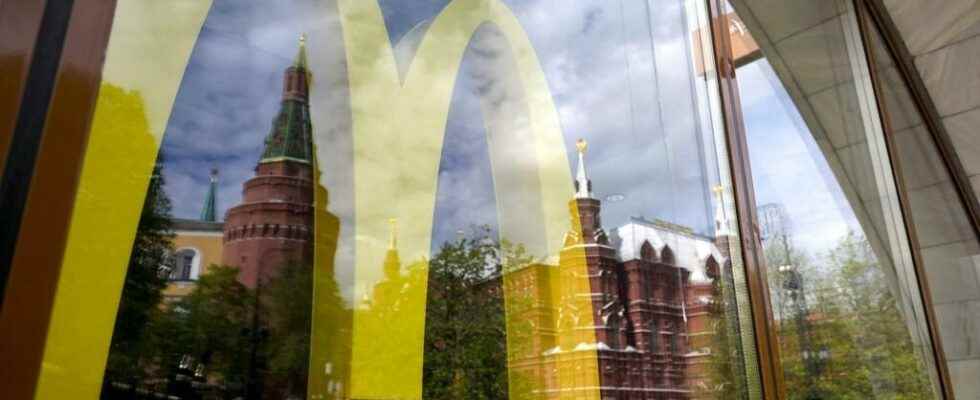European leaders meeting in summit concluded, Monday, May 30 in Brussels, an agreement on an embargo on Russian oil. But in anticipation of this sixth package of sanctions against Moscow, many Western companies had already suspended their activities at the beginning of March and now more and more of them are registering their departure from the country.
With our correspondent in Moscow, Anissa el-Jabri
A gigantic queue in front of a McDonald’s in downtown Moscow… it was exactly March 8, what a symbol, in front of the same store that opened a little over thirty years ago – January 31, 1990 -: first foreign restaurant in the Soviet Union, a few months before its break-up. There had been over 30,000 customers the first day and some had waited until 8 am to be served.
On March 8, so it was all these memories, barely a generation, that came back when McDonald’s announced the suspension of its activities.
Read also : American fast food giant McDonald’s leaves Russia
At the very beginning of March, many brands closed in a few hours in the major Russian cities: furniture, clothing… sometimes several announcements in one day, and each time a rush of customers for the last possible purchases.
► Also to listen : Withdrawal from Russia of large foreign companies: “The Russian population will become poorer”
Many groups had then above all announced a suspension of their activities, the maintenance of employee salaries and some continued to empty stocks, via online stores. In other sectors such as banking or industry, the movement was more disparate.
Those who leave and those who stay
Yale University, in the United States, has since the beginning kept a count of those who leave and those who stay among some 1,200 large foreign companies present in Russia. A count updated almost every day by a team of experts, researchers and students. As of May 30, last night, therefore, the formula of the American university is “almost 1000 companies have reduced their activity”: this implies those which have done so, beyond of course the sanctions which are imposed on all )s.
These companies are even rated from A to F according to “the completeness of the withdrawal”: we learn, for example, who has withdrawn from the market, who is content to maintain factories or who continues to hire – or even increases his deliveries. Unsurprisingly, in the latter case, there are many Chinese companies. This very detailed table highlights an ongoing shift in Russian economic activity from Europe and the United States to Asia.
What will happen to companies that have withdrawn?
Some did not communicate for several weeks before announcing a resale. So for Renault, last week, and the buyer is the Russian state. The French group had succeeded in restoring the Lada brand, but the adventure ended with the first major nationalization in Russia since February 24.
Also to listen : employees of the Renault / Avtovaz plant in Togliatti worried about their future
As for McDonald’s, the Russian State intends to keep some, if not the brand, at least the spirit: the same menus will be sold, the logo remains to be found. The Ministry of Industry and Trade even launched a competition for this ten days ago. Obviously, some had a great time and we also saw proposals like “PutinMak” arrive or in the patriotic series of “Good bye America”, or Zadonald – the Z of “special operation” as the Kremlin – a total of more than 200 proposals. We don’t know yet which one will be chosen.
